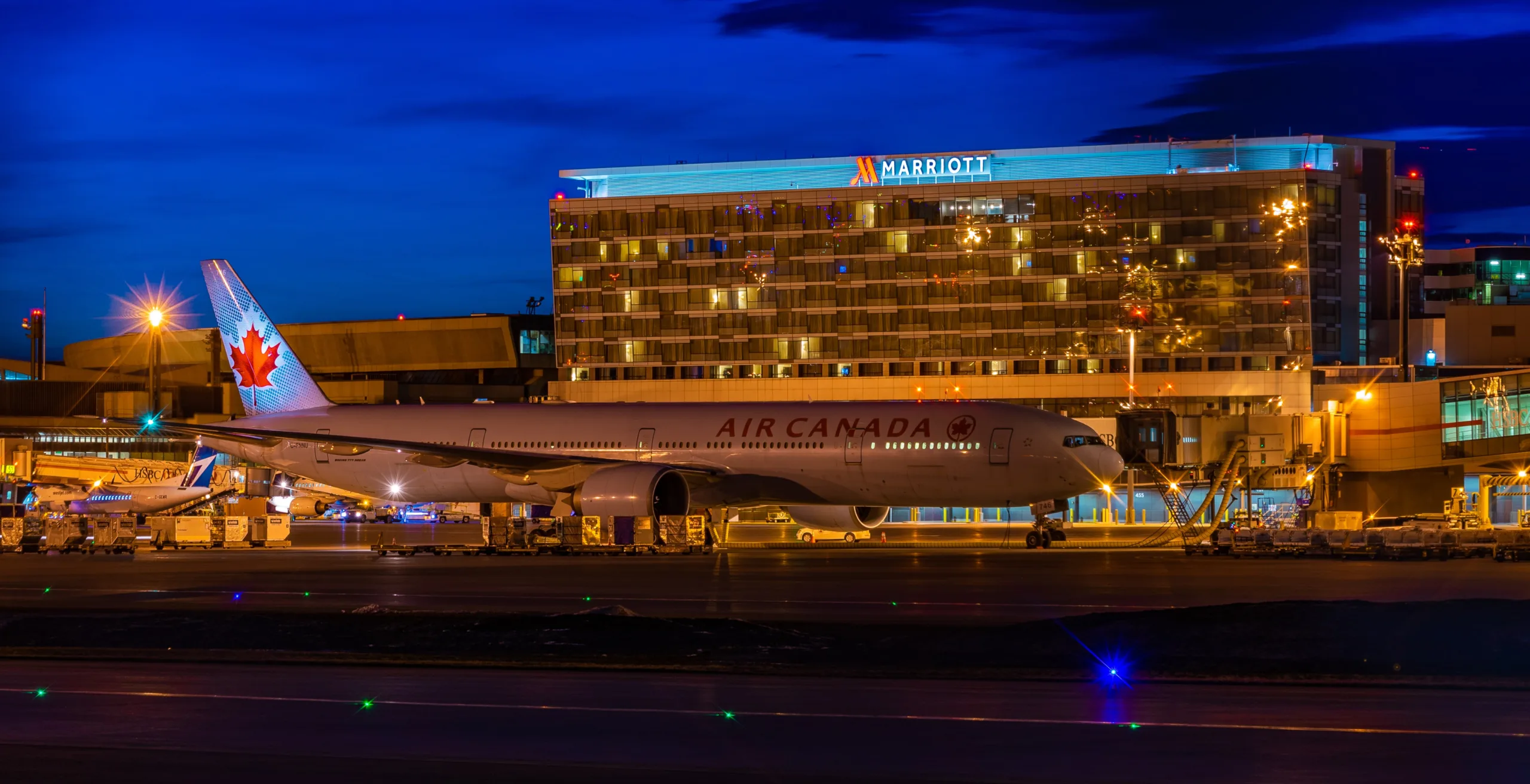
North America’s Global Market Access for International Trade and Commerce
Expand globally with efficient import export business through North America’s worldwide market access to foreign markets and Free Trade Agreements (FTAs).
Alberta’s infrastructure allows business to move forward quickly and affordably. We are well-connected with two of the country’s largest airports and two transcontinental rail carriers with intermodal terminals. We have major highways running east to west and north to south – connecting Alberta to the CANAMEX corridor and to 16 million consumers that can be reached by road in one day from Calgary. Fifteen free trade agreements allow us access to global markets, along with easy access to Canada’s west coast ports and our state-of-the-art inland ports that make distribution less costly and more efficient.
Calgary International Airport
Photo Credit: Justin Hu on Unsplash
IMPORT AND EXPORT BUSINESS: INTERNATIONAL TRADE AND COMMERCE
Alberta’s import and export business is characterized by a strategic position on foreign trade zones, direct access to the United States, and facilitating connections to key international markets in the Pacific Rim and Europe. In 2024, Alberta’s exports reached C$ 182 billion, securing its position as the second-largest exporter among Canadian provinces. The United States is Alberta’s primary export destination, accounting for C$ 161 billion in exports, in 2024.
On the import side, in 2024, Alberta’s imports reached a total of C$ 39 billion through active trade engagements with key trading partners such as the United States, China, and Mexico, along with the effective use of import licenses and strict adherence to the standards set by U.S. Customs and Border Protection.
FREE TRADE AGREEMENTS (FTAs): GLOBAL MARKET ACCESS
Canada’s strategic engagement in 15 free trade agreements provides unparalleled market access strategies, positioning the nation as a gateway to 51 foreign markets.
This network of trade agreements spans a combined market of over 1.5 billion potential consumers, representing a collective GDP of $49.3 trillion USD.
Canada’s free trade agreements include:
- The Canada-United States-Mexico Agreement (CUSMA)
- The Comprehensive and Progressive Agreement for Trans-Pacific Partnership (CPTPP)
- The Comprehensive Economic and Trade Agreement (CETA) with the European Union
FTAs are instrumental in eliminating tariffs, simplifying export/import processes, and allowing global market access for Canadian-based businesses.
INTERNATIONAL AIRPORTS: WORLD-CLASS CARGO SHIPPING
Alberta has three international airports with on-site customs located in Edmonton, Calgary and Fort McMurray.
The Edmonton International Airport (EIA) is Canada’s largest airport by area and is home to world-class cargo operations. As the gateway to Canada’s north, EIA is fully integrated into the region’s logistics network and features industrial land dedicated to agri-business, logistics and distribution, aerospace and aviation, and advanced manufacturing.
To the south, the Calgary International Airport is one of the fastest growing cargo airports in Canada. Over 75% of all Alberta’s air cargo shipments are transported through Calgary which provides access to the US — the world’s largest industrial and consumer market.
Learn more about Alberta’s aviation and logistics capabilities.
TRANSCONTINENTAL RAILROADS AND INTERMODAL FREIGHT TRANSPORT: TRADE INFRASTRUCTURE
Alberta is served by the two most important transcontinental freight transportation players in Canada. Canadian Pacific Railway and Canadian National Railway operate approximately 7,000 route miles in Alberta and transport 66 million tonnes in and out of the province.
Alberta’s extensive rail network not only allows market access across North America, but also to Asian markets. The Port of Vancouver and Port of Prince Rupert, two of Canada’s largest ports, offer regular departures to major markets including China, Japan, South Korea and India.
Alberta’s extensive network of pipelines, highways and telecommunications infrastructure are also attractive to companies looking to do business globally.
In 2019, over $630 million was invested into Alberta communications networks.
INTERNATIONAL NETWORKING OPPORTUNITIES
Alberta has a strong global network due to the multinational companies that operate in the province. There is an innate supportive culture of Albertans connecting businesses and communities.
With over 180 different languages or dialects spoken by Albertans, we welcome ethnic diversity, international businesses, and entrepreneurial talent to move here.
INVEST ALBERTA’S GLOBAL TEAM
Invest Alberta’s Global Team play a strong role in strengthening Alberta’s presence globally. Staff in our international locations are bilingual, experts in their local economy, and knowledgeable about the latest developments in Alberta.
Please see our Global Teams for more information.
STATS

Get Started Today
Learn how we provide tailored international services for you to invest in Alberta
Calgary Folk Festival and Bow River in Calgary
Photo Credit: © Travel Alberta Photo by Tourism Calgary